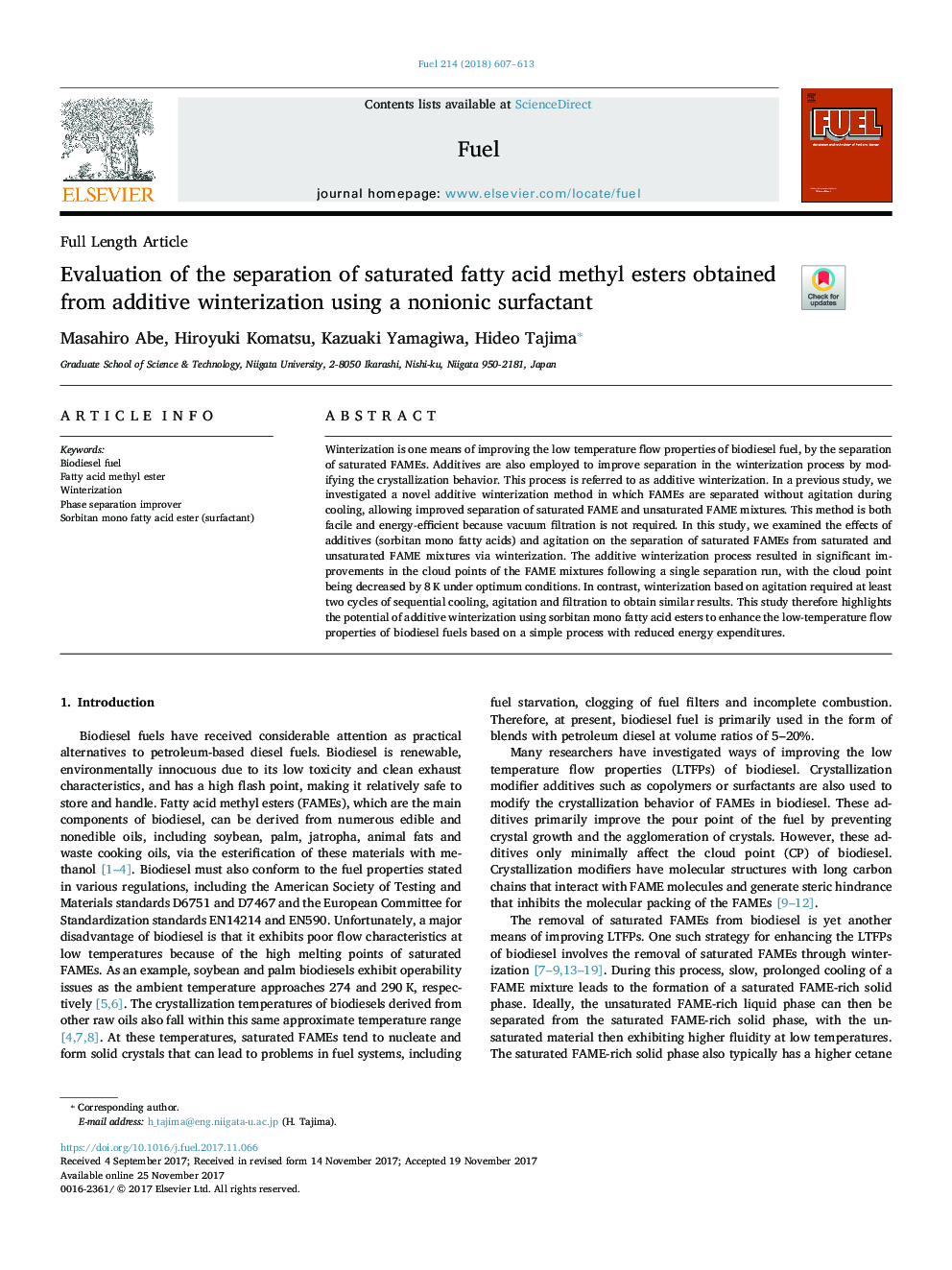| Article ID | Journal | Published Year | Pages | File Type |
|---|---|---|---|---|
| 6632481 | Fuel | 2018 | 7 Pages |
Abstract
Winterization is one means of improving the low temperature flow properties of biodiesel fuel, by the separation of saturated FAMEs. Additives are also employed to improve separation in the winterization process by modifying the crystallization behavior. This process is referred to as additive winterization. In a previous study, we investigated a novel additive winterization method in which FAMEs are separated without agitation during cooling, allowing improved separation of saturated FAME and unsaturated FAME mixtures. This method is both facile and energy-efficient because vacuum filtration is not required. In this study, we examined the effects of additives (sorbitan mono fatty acids) and agitation on the separation of saturated FAMEs from saturated and unsaturated FAME mixtures via winterization. The additive winterization process resulted in significant improvements in the cloud points of the FAME mixtures following a single separation run, with the cloud point being decreased by 8â¯K under optimum conditions. In contrast, winterization based on agitation required at least two cycles of sequential cooling, agitation and filtration to obtain similar results. This study therefore highlights the potential of additive winterization using sorbitan mono fatty acid esters to enhance the low-temperature flow properties of biodiesel fuels based on a simple process with reduced energy expenditures.
Related Topics
Physical Sciences and Engineering
Chemical Engineering
Chemical Engineering (General)
Authors
Masahiro Abe, Hiroyuki Komatsu, Kazuaki Yamagiwa, Hideo Tajima,
